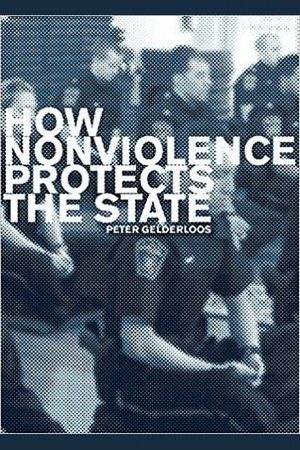How Nonviolence Protects the State
by Peter Gelderloos (2007)
Given the recent upsurge of Extinction Rebellion and other nonviolent movements, this book is highly relevant. Its main weakness is that Gelderloos is an anarchist and thus opposes the state itself rather than the capitalist version of the state. This is a political blunder because any complex society requires state organizations and institutions to regulate its functioning. Nevertheless the author has much of value to say. Two of his key points:
- Arguments for nonviolence are typically based on "falsified histories of struggle". (p. 2) His examples include Gandhi's contribution to India's independence and the civil rights movement in the US under Martin Luther King.
- Nonviolent movements frequently benefit from the threats of violence by related movements. During the US civil rights struggle, for example, "Pacifist, middle-class black activists, including King, got much of their power from the specter of black resistance and the presence of armed black revolutionaries." (p. 12)
